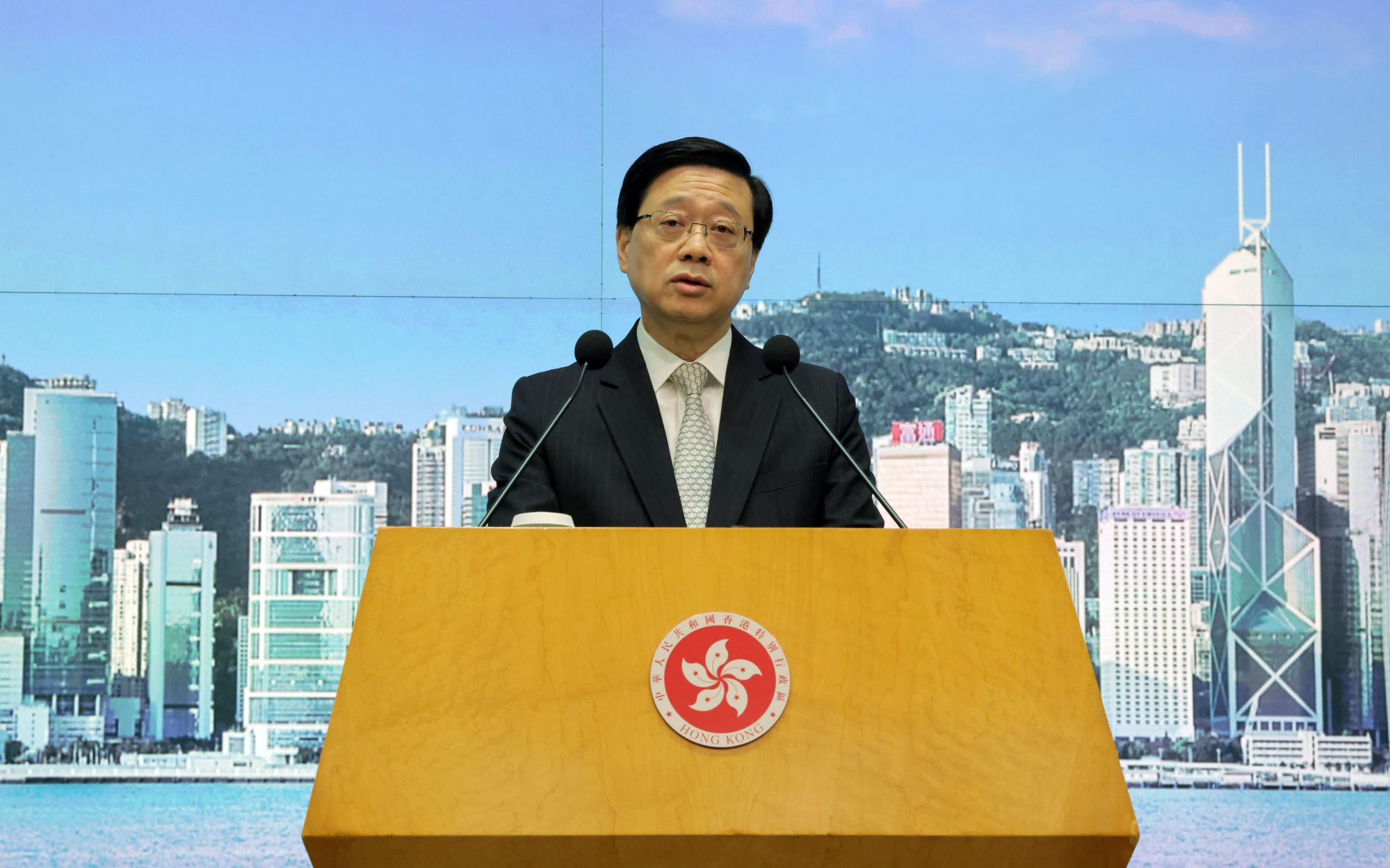
Hong Kong’s John Lee defends removal of public library books, highlights need to ‘serve interest’ of society and stay lawful
- Chief executive does not address whether freedom of access to information would be undermined if censorship standards not transparent
- Post check finds non-political titles by opposition figures also no longer available
Hong Kong’s leader on Tuesday defended the removal of more public library books over political sensitivities, saying material circulated had to “serve the interest” of society without breaching the law.
Hong Kong’s libraries told to quickly root out books ‘contrary’ to national security
“The principles we use, which I support, are to ensure that there is no breach of any laws in Hong Kong, including, of course, copyrights, etc; and also, if they spread any kinds of messages that are not in the interests of Hong Kong.”
He did not address how certain non-political titles could be linked to national security threats but offered his “strong confidence” in the professionalism of colleagues at the Leisure and Cultural Services Department in ensuring public circulation “served the interest” of the city.
Education chief Christine Choi Yuk-lin weighed in on Tuesday during an official visit to Beijing. She said that school libraries had been “updating” the selection of books in line with educational needs.
When asked if educational institutions had to take down the same titles pulled from public library shelves, she said authorities believed in teachers’ judgment to ensure suitable books were available to pupils.

A Post check of archives at major city universities showed some of the pulled books ruled to be sensitive by the authorities were still available on shelves, but not in some mainstream bookstores.
The city’s three largest bookshops – Commercial Press, Chung Hwa Book Company and Joint Publishing – are owned by Bauhinia Culture Holdings, a state-owned enterprise, through Sino United Publishing.
Cultural critic Jimmy Pang Chi-ming, who founded publisher Subculture, said some commercial bookstores faced pressure over the sale of books removed from public library shelves since the imposition of the national security law in 2020.
“What some in the industry and I worry about is that the government will next vet books for national security breaches, following in the footsteps of the mainland [Chinese authorities],” he said. “If it happens, independent publishers’ survival will be at stake.”
Pang was among the writers who had all of his books removed from public libraries recently. He has written more than 20 Chinese books on Cantonese linguistics and political satire.
The news came as pro-democracy activists who moved to the United Kingdom and Taiwan appealed for support for their campaigns to donate copies of books pulled from shelves in Hong Kong to overseas libraries.
The website of “Hongkongers in Britain”, a support group founded by activist Simon Cheng Man-kit, said it had sent books penned by activists and a collection of copies of the now-closed Apple Daily newspaper, which were no longer on Hong Kong library shelves, to the British Library and several UK university libraries.
A spokesman for leisure and cultural services, which runs the city’s 71 libraries and its collection of 15 million items, earlier told the Post that “books with content suspected of breaching the national security law or other local laws” were removed regularly for review.
Stepped-up vetting in public libraries started after an Audit Commission report published last month said more needed to be done to examine “library material for safeguarding national security”.

